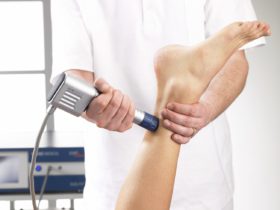If you or someone you love has been diagnosed with a hernia, it can be a frightening and confusing time. You may be feeling overwhelmed by the amount of information you need to know and the decisions you must make.
A hernia occurs when a weak area in the abdominal wall allows an internal organ or fatty tissue to protrude through the area. This protrusion can cause pain and other symptoms, depending on the type of hernia.
Common types of hernias include inguinal hernias (in the groin area), femoral hernias (in the upper thigh), umbilical hernias (in the belly button area), and incisional hernias (which occur when the abdominal wall is weakened due to a previous surgery).
Hernias can be treated in a variety of ways, but hernia surgery is the most common and often the most effective treatment option. Surgery involves making an incision in the area of the hernia and repairing the weakened area with sutures or a mesh patch.
Depending on the type of hernia, there are different surgical techniques and materials used to repair the hernia. Surgery is a major decision, and it is important to understand the risks and benefits associated with hernia repair.
Complications from hernia surgery are rare, but they can occur, including infection, bleeding, and nerve damage. Additionally, there is a risk of recurrence, which can occur if the hernia is not properly repaired.
When considering hernia surgery, you should also weigh your anesthesia options. Depending on the type of hernia and the desired outcome, you may have the option of local, regional, or general anesthesia.
Local anesthesia numbs just the area surrounding the hernia, regional anesthesia numbs a larger area, and general anesthesia puts you to sleep until the end of the surgery. Finally, it is important to know about postoperative pain relief for hernia surgery.
Pain medications, such as acetaminophen and ibuprofen, can be taken to help with postoperative pain. Your doctor may also prescribe stronger opioids, such as codeine and oxycodone, or a nerve block, which is an injection of an anesthetic directly into the area of the hernia.
Hernia surgery is a major procedure and the information in this article is just a starting point. If you are considering hernia surgery, it is important to discuss all of your options with your doctor and to ask any questions you may have.
This will help ensure that you make the best decision for your health and that you are well-informed about the risks and benefits of hernia repair.
When Is Hernia Surgery Necessary?
If you have a hernia, you should be aware of the signs that may indicate that you need emergency surgery. Hernias can be a serious medical condition, and if it is not treated properly, it can be life-threatening. Emergency surgery is typically required if your hernia has become stuck or strangulated, as this can be a medical emergency.
It is important to pay attention to the signs and symptoms of a hernia and seek medical attention if you experience any of the following:
- A hernia bulge that is suddenly larger than before
- A hernia bulge that used to go back inside the abdomen but no longer does
- Fever
- Redness in the area of the hernia
- Sudden or severe pain or tenderness in the area of the hernia
- Symptoms of intestinal obstruction, such as abdominal pain, bloating, nausea, and vomiting
If you experience any of these symptoms, it is important to seek medical attention right away. Delaying medical care can put you at risk of serious complications. Your doctor may recommend emergency surgery to repair the hernia if it is necessary.
During emergency surgery, your doctor will make an incision in the affected area to repair the hernia and prevent further complications. The hernia will be repaired with sutures or a mesh patch, depending on the size and type of hernia you have.
Recovery time and post-surgery care will vary depending on the type of hernia and the extent of the surgery. It is important to be aware of the signs and symptoms of a hernia and to seek medical attention if these signs occur.
Early diagnosis and treatment is key to avoiding further complications and ensuring a successful recovery. If you experience any of the symptoms listed above, contact your doctor right away.









